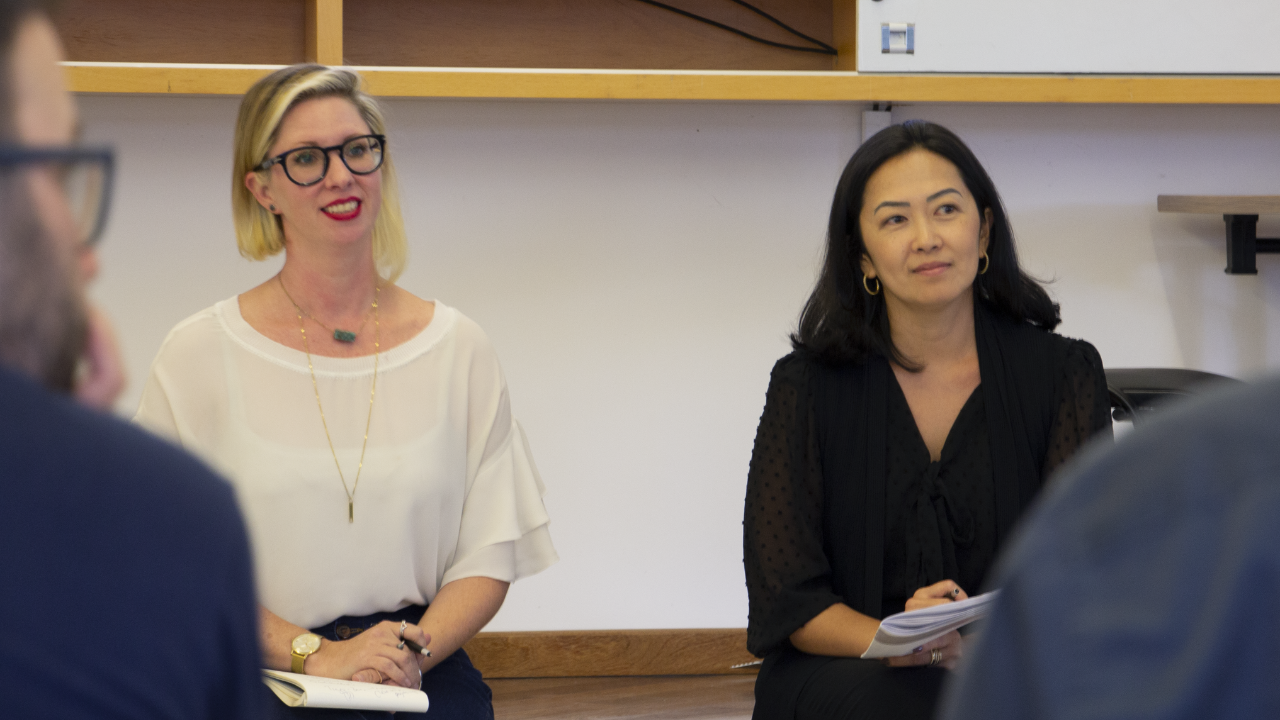
You might respond that both things are important. And, indeed, they are. However, who to work with is more valuable if we think in the medium and long term, and I'll explain why.
You can imagine that a large company with infinite material benefits could be the path to success. And can.
However, imagine that in this organization people are not as receptive or are seeking to change harmful behaviors that have permeated the corporate past.
If you have ever worked with people who do not seek change, you must know that in the medium and long term relationships can deteriorate immensely, to the point of affecting our mental health.
Of course, we can't always choose the best scenarios. In reality, most will never have the chance to weigh what is most worthwhile: where to work or who to work with.
But if you have the possibility of choosing, go with me: choose who to work with.
Here in LongVision, we call soft skills human skills. And what are these skills?
Human skills or soft skills are those socio-behavioral skills that are related to our emotions.
Although they are difficult to measure, such skills are increasingly highlighted in the market, as they are rarer to be found.
On the other hand, hard skills still have their importance. However, as they are easier to measure, as they have to do with technical skills, they can simply be acquired through courses and training.
Also through training. And practice.
As you may have noticed, these skills are exactly those that give the clear answer to the question at the beginning of this article: where or with whom to work?
Companies that develop people along the path of human skills are much more human, welcoming and healthy than those that only value hard skills.
That is, if you can choose, choose these companies.
Even though it is not easy or automatic to develop socio-behavioral skills linked to emotional intelligence, people who seek this evolution are exactly those who will lead better, communicate better, connect better and, above all, inspire.
And you must have already had someone in your life to inspire you in search of growth, right?
Therefore, working with those who inspire will take you much further than any place that focuses only on techniques and material.
The fact that the answer to the initial question is who to work with, rather than where, is so relevant that a survey recently carried out by an online CV platform proved that more than half of the Brazilian population of working age prioritizes a healthy environment.
In fact, 56% of Brazilians consider mental health at work to be relevant, giving priority to environments where people develop their well-being and happiness.
Remembering that the work environment reflects the people and interpersonal relationships that are part of it.
In other words, we cannot choose a healthy environment if the people there do not think about emotional and psychological factors.
Ultimately, it is clear that who to work with is more valuable than where. In fact, according to this research, only 4% of the respondents have the financial aspect as the only determinant in the professional satisfaction equation.
Just as I spoke about the development of soft or human skills, developing a healthy work environment necessarily requires training and practices.
Nothing happens overnight. But transformation is possible with the right guide and with consistency and constancy.
The other day, a client told me that he didn't believe that LongVision training could change so much the way his team works, behaves and thinks. He also said that what our inspirers do in the classroom is art.
We believe that art is only transformative if the public relates to it. In other words, the protagonism is not in the art itself, but in those who allow themselves to be part of it.
To find out more about our training and inspiration, visit: https://longvision.com.br/solucoes/
And don't forget to read: